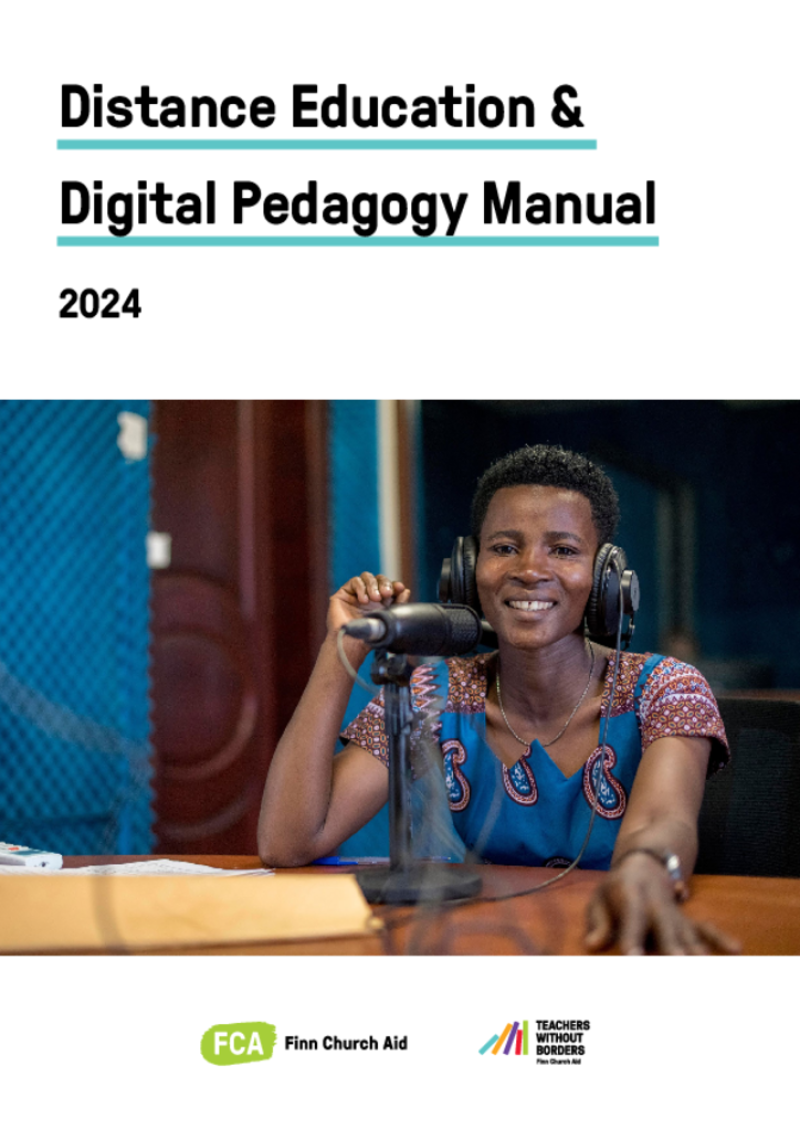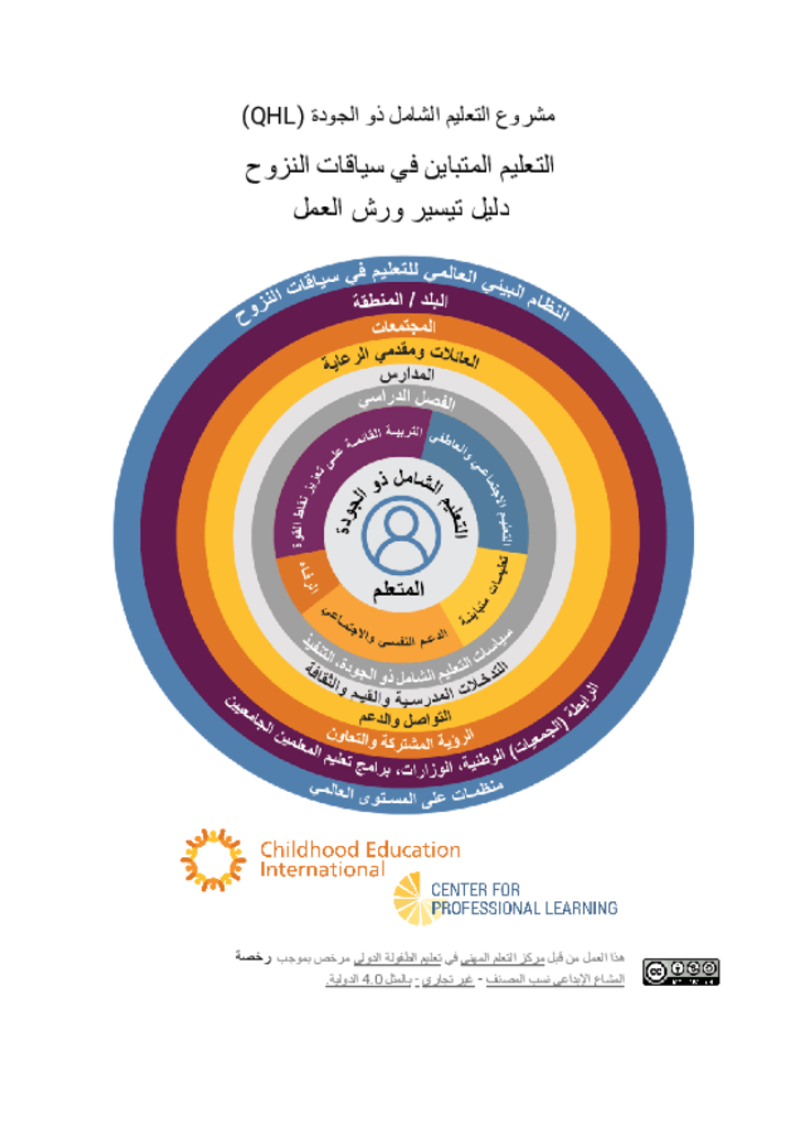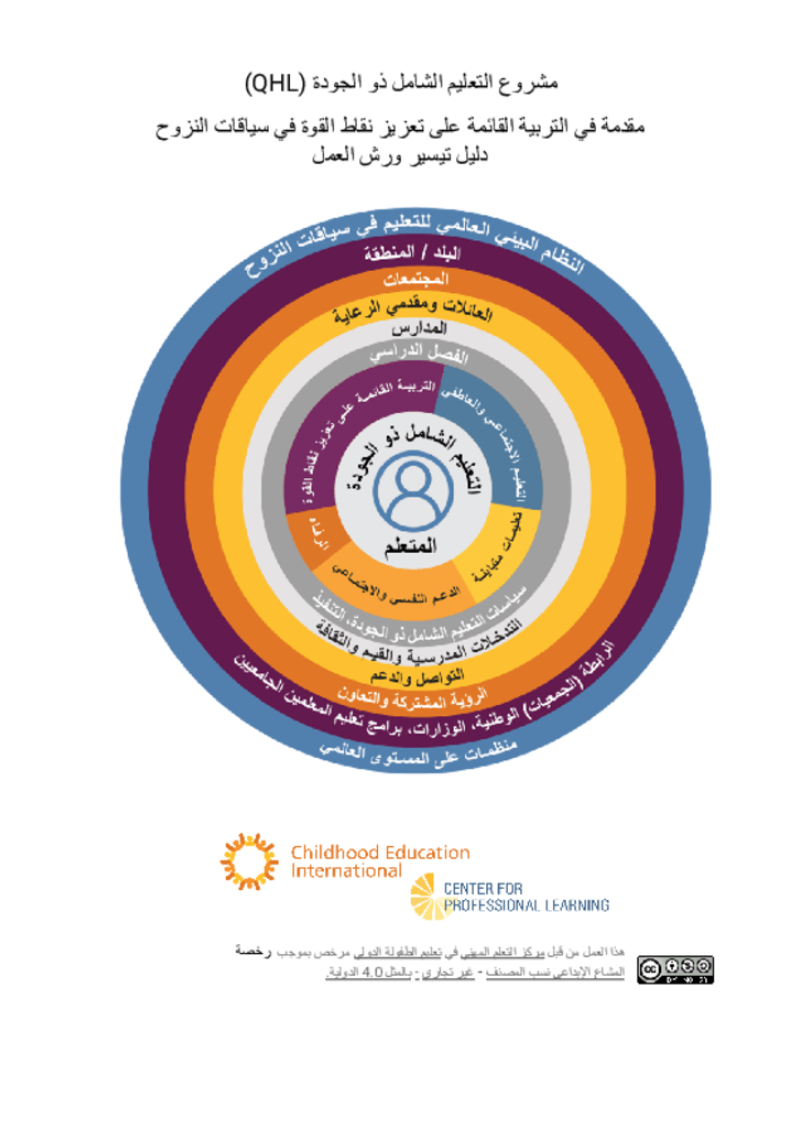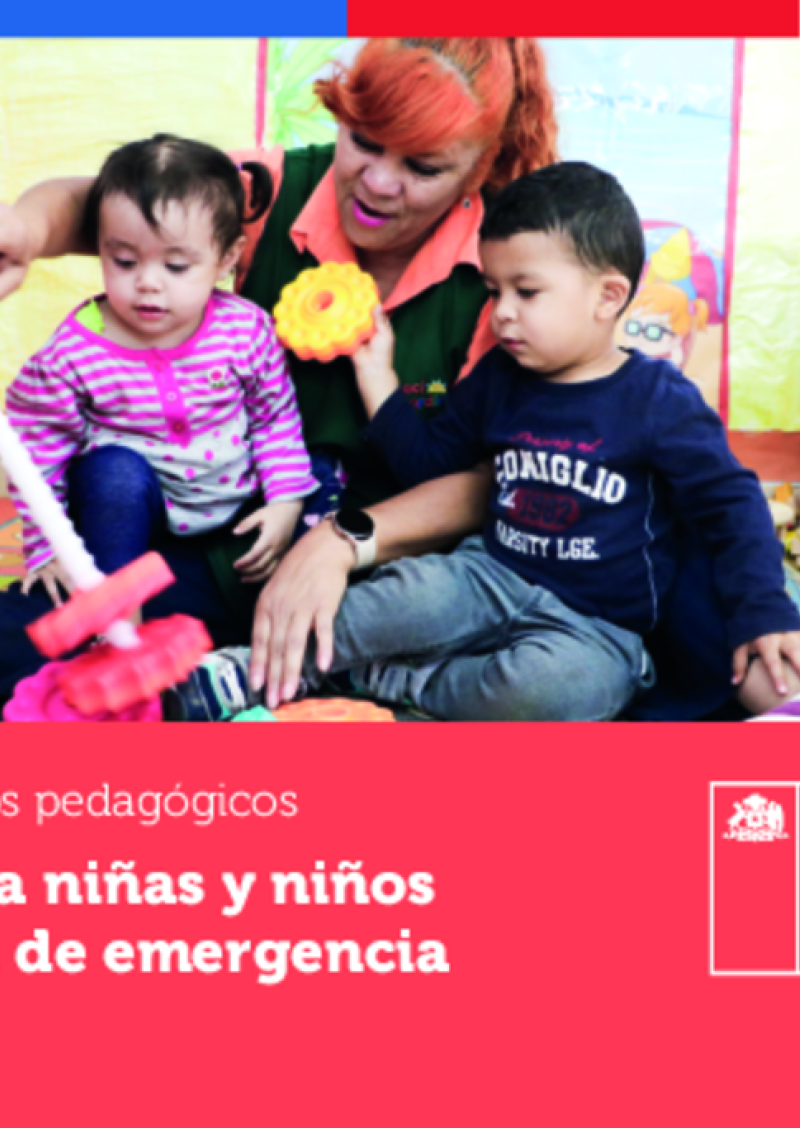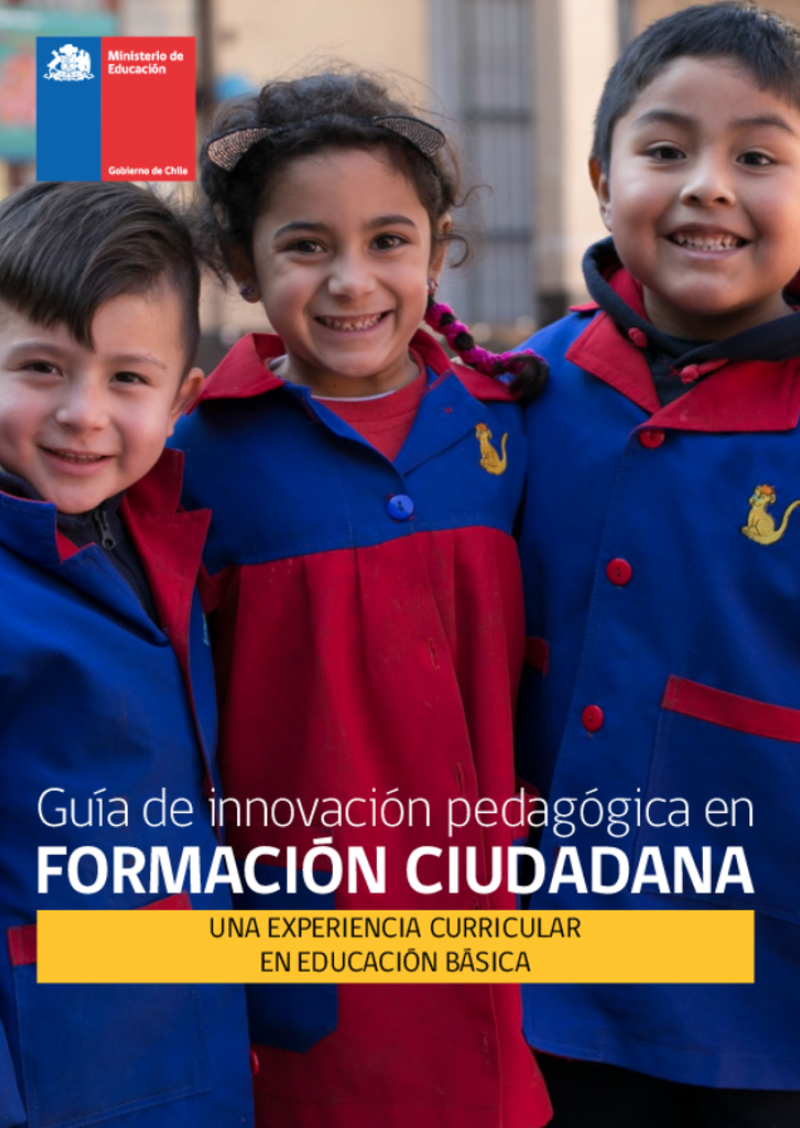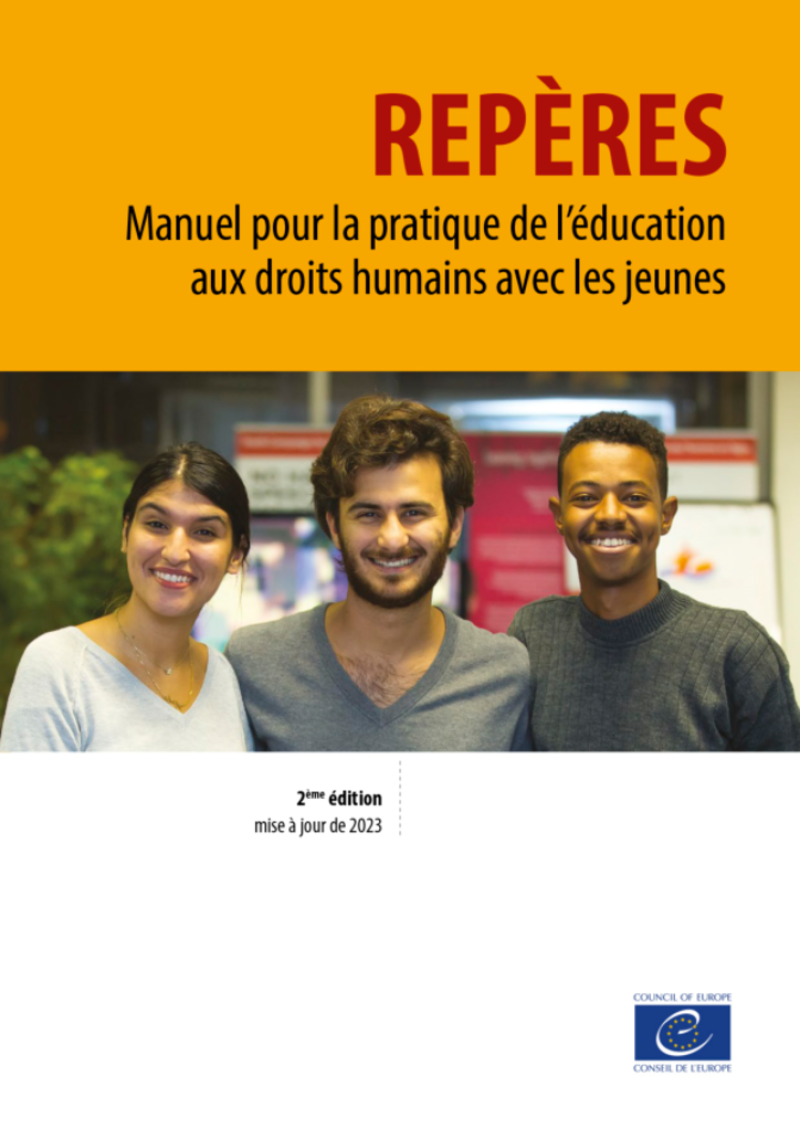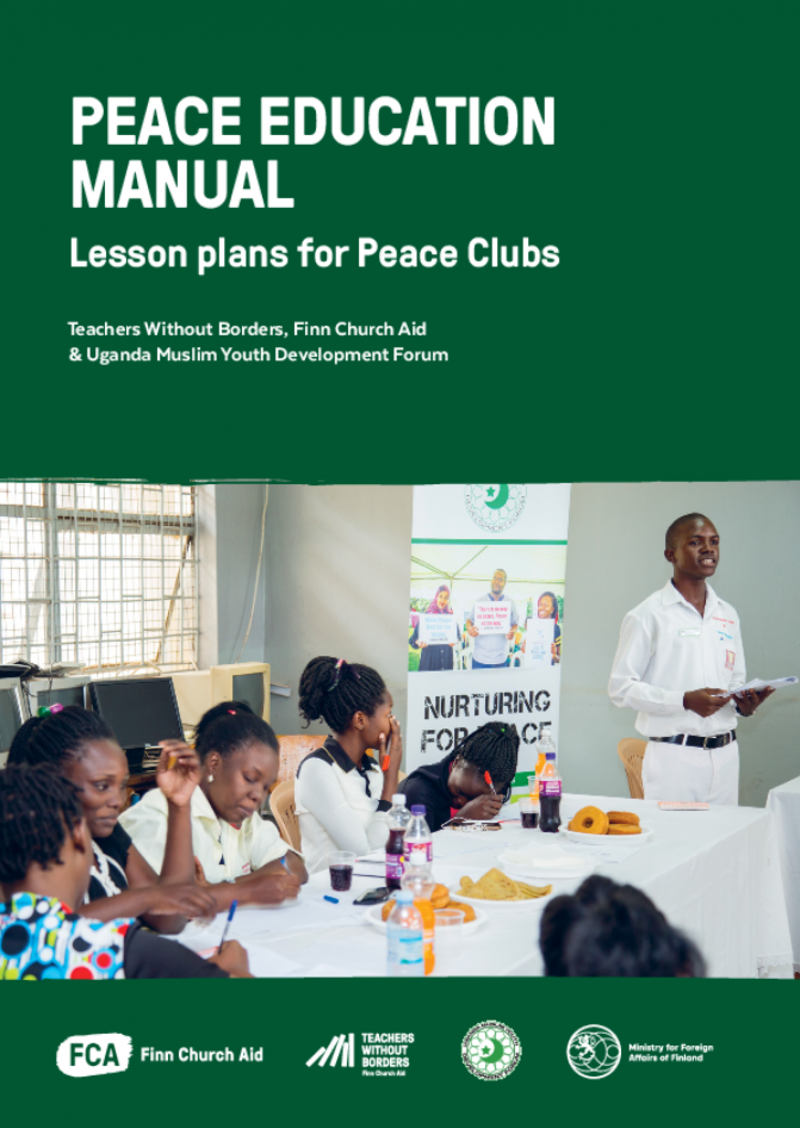مركز موارد المعلمين
عرض 1 - 20 من 35
FCA & TWB Distance Education & Digital Pedagogy Manual
This teacher training manual on Distance Education & Digital Pedagogy supports teachers and other education personnel’s continuous professional development in pedagogically high-quality distance education and remote learning especially in diverse, low resource contexts and is adaptable for use anywhere in the world.
The manual has been developed by Finn Church Aid (FCA) and Teachers Without Borders (TWB) Finland. The development of the training materials began already in 2020 as a response to the school lock-down situations caused by the COVID-19 pandemic, when teachers and learners quickly had to adapt to remote education modalities. Even though the pandemic has subsided, the need for quality distance education prevails. Ensuring the continuity of learning for all learners is critical in all contexts, even and especially during crisis situations.
The training manual consists of eight (8) training modules that can be used flexibly:
- Distance Education,
- Distance Education Modalities,
- Pedagogy of Digital and Distance Education,
- Psychosocial and Emotional Wellbeing,
- Learner-Centred Methods in Distance Education,
- Home Support – Parents and Caregivers’ Role and Collaboration,
- Inclusive Education, and
- Assessment and Evaluation.
The content design allows the trainer or facilitator to pick individual modules or sessions and adapt the training content according to the context and target group’s needs.
We hope you find it useful!
التعليم المتباين في سياقات النزوح دليل تيسير ورش العمل
في هذا الدليل، هناك مطالبات لدعم استكشاف المحتوى والتطبيق على السياق المحلي. هناك أيضًا نصائح لدعم المعلمين أثناء توفيرهم للمساحة والوقت للتعلم المهني في حياتهم المزدحمة والمجهدة في كثير من الأحيان. أخيرًا، يقدم هذا الدليل بعض النصائح فيما يتعلق بالجوانب الإلكترونية و/أو الجوانب التكنولوجية الأخرى لهذا التدريب.
يهدف مشروع التعلم الشامل عالي الجودة (QHL)، والذي تعد ورشة العمل وجهًا لوجه أحد عناصره، إلى إعداد المعلمين لتقديم دروس عالية الجودة تدعم التعلم الشامل للأطفال والشباب من خلفيات متنوعة (اللاجئين والمهاجرين و/ أو المواطن) داخل البلد المضيف وسياقات النزوح والأزمات. إنهم يعرّفون التعلم الشامل عالي الجودة بأنه ذلك الذي يهتم بما يلي: ● التطوير الأكاديمي والمعرفي وتنمية الهوية، ● التعلم الاجتماعي والعاطفي، و ● الرفاه العقلي/النفسي الاجتماعي والجسدي والذي يوفر: ● تجارب مدرسية إيجابية، ● مشاعر الانتماء والانتماء السلامة، ● النمو والتطور، و ● نتائج عادلة لجميع المتعلمين.
مقدمة في التربية القائمة على تعزيز نقاط القوة في سياقات النزوح دليل تيسير ورش العمل
يهدف هذا الدليل إلى دعم تقديم مجموعة من أربع ورش عمل تمهيدية حول موضوع دعم التربية القائمة على تعزيز نقاط القوة في سياقات الأزمات من خلال تنفيذ أدوات وأنشطة التدريس القائم على تعزيز نقاط القوة ومن خلال الحفاظ على مساحات تعليمية آمنة ومأمونة.
ورش العمل هي نتيجة المساهمات الثاقبة لفريق ملتزم من المعلمين والمعلمين من كينيا ولبنان والنيجر.
أصول علم التّربيّة القائمة على تعزيز نقاط القوّة لتعلّم شامل عالي الجودة
تمّ تصميم هذه الدّورة التّدريبيّة المفتوحة - ذاتيّة الوتيرة، والمعتمدة على أصول التّربيّة القائمة على (نقاط القوّة)؛ للتّعلّم الشّامل عالي الجودة - من قِبَل المعلّمين لزملائهم، وخاصًّة أولئك الّذين يعملون مع المتعلّمين اللاجئين، والضّعفاء. والهدف منها هو تقديم لمحةٍ عامّةٍ عن المصطلحات، والمفاهيم، والممارسات الرّئيسة المتعلّقة بالأساليب التّربوية القائمة على (نقاط القوّة).
سيكون لدى المعلّمين الّذين يُكمِلون هذه الدّورة التّدريبيّة القصيرة عبر الإنترنت، القدرة على ما يلي:
- اكتساب فَهْم عمليّ لماهيّة (طبيعة) طرق التّربيّة القائمة على نقاط القوّة، وأسباب أهمّيتها.
- القدرة على تحديد الطّرق الّتي يمكن من خلالها تطبيق أساليب التّربية القائمة على نقاط القوّة في الفصل الدّراسيّ.
- التّأكد من إمكانيّة تطبيق أصول علم التّربيّة القائمة على نقاط القوّة في سياق عملهم.
سوف تستغرق من 3-4 ساعات، في المتوسط ، لإكمال هذه الدورة. وسيتمّ إصدار شهادة مشاركة عند الانتهاء بنجاح. شكرًا لك على اهتمامك والتزامك بالتّعلّم المهنيّ والتّعليم!
يجري حاليًّا تطوير دليلٍ؛ لاستخدامه في حال عدم توافر الإنترنيت، كأداةٍ موازيةٍ للتّعرّف على طرق التّربيّة القائمة على نقاط القوّة. يُرجَى الاتصال بـ jkasper@ceinternational1892.org ؛ لمناقشة تجربة هذه المادّة الإضافيّة
مُقدِّمة في التّعلّم الاجتماعيّ والعاطفيّ والدّعم النّفسيّ الاجتماعيّ من أجل التّعلّم الشّامل عالي الجودة
تم تطوير هذه الدورة التدريبية عبر الإنترنت ، والتي تُرجمت إلى اللغة العربية ، بناءً على مواد ورشة العمل المصممة بواسطة زملاء مشروع التعلم الشامل عالي الجودة
(QHL) في النيجر. يقدم هذا المساق التعلم الاجتماعي والعاطفي (SEL) ، والدعم النفسي الاجتماعي (PSS) ، وأماكن التعلم الآمنة والشاملة. هذا هو مصدر تعليمي ذاتي
(غير مُيسَّر). المواد المترجمة شبيهة جدًا بالنسخة الإنجليزية.
دمج التّعلّم العاطفي والدّعم النفسي الاجتماعي في دروس التّعلّم الشامل العالي الجودة
دمج التّعلّم العاطفيّ الاجتماعيّ SEL والدّعم النّفسيّ الاجتماعيّ PSS في دروس التّعلّم الشّامل عالي الجودة
تمّ تصميم هذه الدّورة التّدريبيّة المفتوحة - ذاتيّة الوتيرة، والّتي تقوم على دمج (PSS) و (SEL) في الدّروس من أجل التّعلّم الشّامل عالي الجودة - من قِبَل فريق من المعلّمين الّذين يعملون مع المتعلّمين اللاجئين، والضّعفاء في جميع أنحاء لبنان.
وتهدف إلى البناء على ما تمّ تعلّمه مسّبقًا فيما يتعلّق بالتّعلّم الاجتماعيّ والعاطفيّ (SEL)، والدّعم النّفسيّ الاجتماعيّ (PSS)، وذلك لتزويد المعلّمين بالثّقة؛ لتقييم الأنشطة بشكلٍ نقديّ، وتكييّفها مع سياقهم المحليّ، وتقييم مدى تأثيرها على تعلّم الطّلاب ورفاههم.
سيكون لدى المعلّمين الّذين يُكمِلون هذه الدّورة التّدريبيّة القدرة على:
- تحديد مفهوم (PSS) و (SEL).
- دمج (PSS) و (SEL) في خطط الدّروس.
- خلق مساحات آمنة للمتعلّمين النّازحين، واللاجئين، وغيرهم من الطّلاب الضّعفاء.
- التّفكير في الأدوات وطرق التّعليم عند تنفيذ أنشطة (PSS) و (SEL).
- تقييم تكيُّفها، ومدى قدرتها على تنفيذ أنشطة (PSS) و (SEL).
سوف تستغرق من 8-10 ساعة، في المتوسط ، لإكمال هذه الدورة.
Ficha para equipos pedagógicos - Acompañar a niñas y niños en situación de emergencia
Este recurso para docentes ofrece ejemplos y materiales adicionales para apoyar a los educadores que trabajan con niños de parvulario en situaciones de emergencia. Las comunidades pueden enfrentar momentos de crisis los cuales afectan a los niños en sus contextos familiares, educativos y comunitarios. La guía ayuda a identificar estos efectos adversos y proporciona apoyo oportuno para mitigar el impacto en los niños, uno de los grupos más vulnerables en estas situaciones.
Guía de innovación pedagógica en formación ciudadana
Esta guía ofrece a los docentes herramientas y estrategias para comprender y enseñar el concepto abstracto de ciudadanía en el aula. Proporciona recursos pedagógicos, actividades prácticas y ejemplos concretos para ayudar a los estudiantes a internalizar valores cívicos y democráticos. Además, incluye planes de lecciones y evaluaciones que facilitan para el docente la integración del tema en su práctica, promoviendo una educación integral y participativa. Con esta guía, los docentes pueden fomentar una comprensión profunda y crítica de la ciudadanía entre sus alumnos.
Play & resilience: a toolkit for teachers, caregivers, and other stakeholders
Play is an easy, natural and universal practice that builds resilience. Play comes naturally to all children- and is a seemingly simple and light-hearted phenomenon. The power of play as a pathway to building resilience needs to be leveraged to provide children with the opportunity to further explore play in their home and school environments.
This toolkit is therefore premised on the objectives to build the capacity of various stakeholders such as caregivers/teachers, school managers, curriculum planners and policy makers who are key actors in the process of growth and development of children. It is also aimed at equipping these stakeholders with the knowledge and pedagogical skills to translate research, policy and curriculum to practical knowledge and activities for children in the school environment. The toolkit offers directions for facilitators who will be working with caregivers/teachers using the materials and resources provided and other relevant materials available in an environment where it will be used.
Pedagogies of Belonging: Educators Building Welcoming Communities in Settings of Conflict and Migration
What would it take to ensure that all young people have access to learning that enables them to feel a sense of belonging and prepares them to help build more peaceful and equitable futures? This is a question we have found educators in contexts of conflict and migration ask of themselves each day. And each day, in classrooms around the world, educators are acting in response to this question.
Educators are figuring out what to teach, ways to teach, and how to foster relationships of learning and belonging.
We learn from educators how they create space for dissent, for dialogue, for trust, for new identities, for future-building, and how they envision and build newly imagined and welcoming communities.
Pedagogies of belonging, featured in this book and in its title, emerge from these ways of thinking and acting by educators. We see across educators that what they teach, how they teach, and why they teach in the ways they do come together to enable all young people to feel a sense of belonging and prepare them to help build more peaceful and equitable futures.
This book is about educators and for educators. It is about the practices educators have developed to create welcoming communities in settings of conflict and migration. Each chapter is a “microportrait” of one educator who we have come to know by spending time in their classroom and school.
We focus on the why and the how of practices educators use. We show, through text and art, how educators learn about their students’ experiences, needs, and desires. We describe how educators develop practices to meet these learning and belonging goals. And we recognize how educators address struggles that necessarily arise in this work. We hope the practices give us each ideas to try out in our own classrooms, schools, and other educational sites.
Each microportrait is grounded in research about educator practices. Authors of the microportraits came to know the educators through research projects that included interviews, observations, and sometimes participatory methods. Each project was at least a few months and at times spanned many years. The microportraits include links to articles that can support deeper learning about the contexts and practices of the educators.
This book is a collective project, and we welcome your participation. The intention of this book is that it lives and grows to include more microportraits over time and more patterns of practices that may emerge. Please be in touch with suggestions, to share your experiences with the practices of these educators, or to contribute a microportrait to the collection.
Global citizenship education in a digital age: teacher guidelines
This publication has been designed both for new and experienced teachers, as well as other professionals working in non-formal education settings that engage with upper primary and secondary students.
Purpose:
1.By using principles of GCED, digital citizenship, and media and information literacy, the guidelines aim to build the capacities of teachers to prepare learners to understand the implications of global and digital transformations on education, and to build opportunities to practice ethical and responsible behaviours in physical and digital environments. They provide guidance on tapping into the positive potential of the digital transformation, including through new access to information, possibilities of connection, and the creation of tailored content.
2. Build learners’ capacities to think critically about the influences and content that they encounter and engage in creating in physical and digital spaces.
3. Shape learners’ understanding of global challenges and how they can contribute to the Sustainable Development Goals (SDGs) through globally oriented digital citizenship.
Repères - Manuel pour la pratique de l'éducation aux droits humains avec les jeunes
Ce manuel à destination des enseignants propose différentes ressources pour aborder la question des droits humains auprès des élèves allant de la définition des différents thèmes abordés tel que la citoyenneté, l’environnement, la mémoire, l’égalité de genre entre autres. Il y est également proposé un ensemble d’activités sous différentes formes (théâtre, audiovisuelle, études de cas, analyses de média). Il s’agit d'un guide complet qui accompagne l’utilisateur depuis le choix de l’activité, à sa mise en place auprès des élèves. Il est également accessible depuis la plateforme suivante : Repères.
Teaching and Learning with Living Heritage: A Resource Kit for Teachers
This resource kit includes several components that provide teachers with information on why and how to incorporate living heritage into their school based activities. It was developed as a result of the UNESCO–EU initiative on cultural heritage and education, under the European Year of Cultural Heritage in 2018, and it builds on projects across a variety of subjects developed by teacher from 10 countries.
Peace Education Manual. Lesson plans for Peace Clubs
This Peace Education Manual has been developed in collaboration with Finn Church Aid (FCA) Uganda, local partner Uganda Muslim Youth Development Forum (UMYDF) and Teachers Without Borders (TWB) Network Finland.
The manual was developed to strengthen the pedagogical and methodological quality of local peace clubs during the spring and summer of 2022. The contents of the manual were successfully piloted with more than 480 young people in eight lower secondary school peace clubs established and run by UMYDF with the support of FCA in Uganda. Two of the peace clubs are located in the Bidibidi Refugee Settlement, one of the largest refugee settlements in the world.
The material consists of 34 lessons plans and is primarily aimed for young people. The different sections and activities of the material can be used flexibly in training, clubs, or, for example, as individual lessons on peace building, socio-emotional skills, conflict resolution or cooperation skills. The exercises are functional, learner-centered and emphasize active participation of youth. The material is adaptable for use anywhere in the world.
FCA and UMYDF have been working together since 2016 in Uganda to promote the positive role of youth in conflict prevention and peacebuilding. In our work, peace education is defined as a holistic, multidisciplinary and transformative process that seeks to develop capacities that promote non-violent conflict resolution, respect for human rights and active participation.
Teaching to prevent atrocity crimes: a guide for teachers in Africa
This is UNESCO's first resource with a regional focus on teaching to prevent atrocity crimes. It was developed with the United Nations and in partnership with the UNESCO International Institute for Capacity Building in Africa (IICBA). The guide was informed by exchanges with African stakeholders and advisors and tested through a piloting exercise with African teachers and students. It provides principles for teachers to consider in facilitating learning and constructive discussions with their students.
Transformative pedagogy: a teachers’ guide for peace and resilience building in North Africa
This guide is designed to build the capacity of teachers so that they are informed and empowered in why and how to educate for peace-building. It offers an analysis of conflict, examines the role of ethics, expands on the elements of transformative pedagogy. It also provides practical tools to support learners’ active participation in shaping the world around them and assess learners’ understanding of peacebuilding concepts and skills, all while engaging the community.
Addressing anti-semitism in schools: training curriculum for secondary education teachers
This publication is part of a four-volume set of training curricula to address anti-Semitism in schools. This volume focuses on the training curriculum for secondary education teachers. Each volume in this set aims to assist trainers in the field of education globally to work effectively towards strengthening the capacity of teachers to prevent and respond to antiSemitism, this specific and highly dangerous type of prejudice directed at Jewish people. In this sense, the curriculum addresses anti-Semitic prejudice and perceptions of Jews, phenomena which often also fulfil a social and political function in societies around the world; it is not material aimed at preparing teachers for intercultural dialogue.
Addressing anti-semitism in schools: training curriculum for vocational education teachers
This publication is part of a four-volume set of training curricula to address anti-Semitism in schools. This volume focuses on the training curriculum for vocational education teachers. Each volume in this set aims to assist trainers in the field of education globally to work effectively towards strengthening the capacity of teachers to prevent and respond to antiSemitism, this specific and highly dangerous type of prejudice directed at Jewish people. In this sense, the curriculum addresses anti-Semitic prejudice and perceptions of Jews, phenomena which often also fulfil a social and political function in societies around the world; it is not material aimed at preparing teachers for intercultural dialogue.
